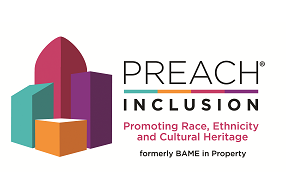The commercial real estate (CRE) industry has experienced a positive transformation over the past 10 years in relation to the role of women within the sector. According to the latest FTSE Women Leaders Review, women’s representation now stands at 40.2% on boards of FTSE 350 companies – an all-time high.

While women may have historically encountered challenges influenced by societal biases and gender stereotypes, and relating to their ability to balance work, motherhood and progress their careers, the shifting dial is gaining momentum.
For women, the return to work after having children can be daunting, with many mothers often finding it difficult to strike the right balance between family life and career goals. However, it is important to acknowledge that despite these challenges, women have continuously demonstrated resilience and a strong drive for success.
The increased pressure faced by women juggling these roles often leads to valuable personal growth and generates a deeper sense of determination. And while it may seem that reaching senior board level is an insurmountable task, it’s not impossible. The fact women made up only 9.5% of members on boards of FTSE 350 companies back in 2011 is an incredibly valuable reminder of this.
Historically, societal expectations placed a disproportionate burden on women to fulfil the caregiving role. As a result, limited workplace support for working mothers and outdated gender stereotyping typically undermined their leadership potential and limited their career progression.
However, fast-forward to now, and employers are increasingly recognising the importance of fostering inclusive and supportive environments and are open to addressing the unique challenges encountered not just by working mothers, but working fathers too. Some of the initiatives delivered by companies these days include fully paid parental leave for up to 26 weeks for all employees, family-friendly working hours and access and financial support with childcare.
Within the CRE space, it’s pleasing to see many companies are taking proactive steps to support employee development and make senior roles more of a realistic option. Simple measures, such as remote working, flexible schedules and job sharing, not only enable new mothers to navigate their career journeys; they empower new fathers to actively participate in caregiving responsibilities, too. An inclusive organisation-wide approach of this nature recognises the key role both parents play in raising a family while supporting pursuit of their professional ambitions, regardless of gender.
Meanwhile, mentoring programmes also offer significant benefits for men and women at all levels, including employees in more junior positions. Appointing male mentors, who work with both men and women, and female mentors, who work with both women and men, connects people organisation-wide, creating a wider ethos of belonging, knowledge-sharing and support.
Multi-mentor programmes in which mentees can work with multiple male and female mentors at the same time is an incredibly effective tactic. Plus, introducing careers advice from a young age can help guide students or interns towards a fulfilling career path in which they can thrive.
A fresh take on networking, mentoring makes senior-level development more of a realistic goal. It fosters confidence among employees and helps address and tackle career advancement barriers from an empowered and collaborative perspective. In turn, this helps to build a supportive and inclusive working environment that retains talent and encourages all employees to succeed, irrespective of gender or family responsibilities.
I sincerely believe that tangible changes and policies like those mentioned above will lead to higher levels of productivity and a more diverse management approach that sparks fresh, equal development-driven thinking.
It is essential that businesses take the time to review their existing processes and implement clear goals and effective policies that promote equal opportunities organisation-wide, whether this involves adopting flexible working arrangements or developing supportive parental leave policies and/or initiatives specifically aimed at promoting diversity and inclusivity. The creation of a fair and supportive working environment will enable all staff members to reach their full potential and make more valuable long-term contributions, no doubt building immense company loyalty in the process.
Katherine Croom is managing director at Sorbon Estates
Join us for an unforgettable evening of celebration, empowerment, and inspiration at Property Week’s inaugural Inspiring Women in Property Awards taking place 5 October at the Hilton London Metropole.
Book your tickets now to witness the recognition of outstanding achievements by individuals, teams, and commendable corporate initiatives that have made remarkable contributions to improving gender imbalance in the UK property and real estate industry.
For more information, to view the finalists, and to book tickets please visit https://iwip.propertyweek.com/inspiringwomeninproperty2023/en/page/home






























No comments yet